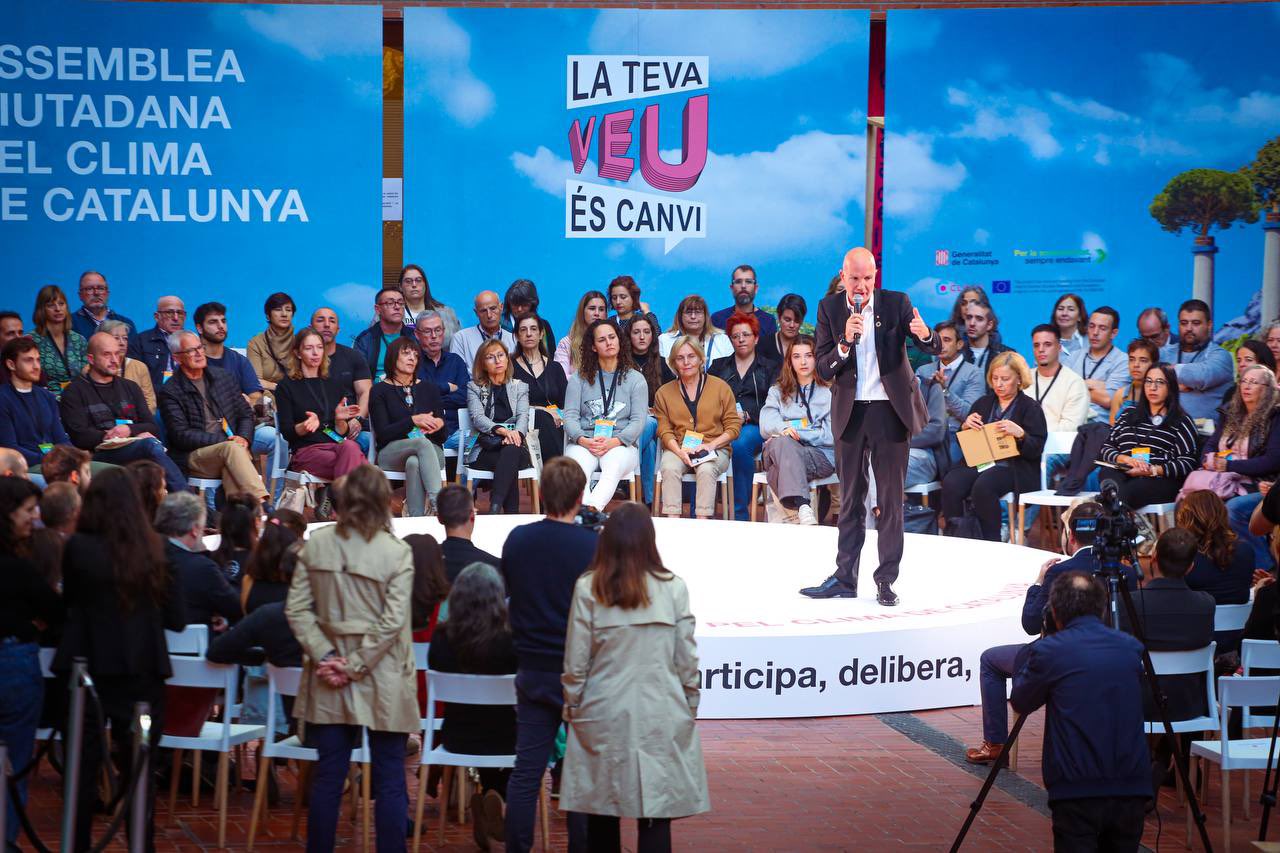
Catalan Citizen’s Assemblies on Climate
A group of 100 people, randomly selected from across Catalonia, will come together to discuss climate change policies in the region. This discussion will focus on two significant dilemmas: the deployment of renewable energies and the model for future food consumption.
The aim of this Assembly is to give a voice to citizens, particularly those aged 16 and above, with a diverse representation from all of Catalonia. Selection is done through a stratified lottery to ensure equal opportunities and a broad diversity of sociodemographic profiles. With a population sample of 20,000 people, the goal is to capture a maximum range of perspectives during the deliberative sessions.
Participation in the Assembly does not require prior knowledge of climate change. Support will be provided through experts and a facilitation team to assist in participation. Assembly members will receive financial compensation for each session, as well as transportation, catering, accommodation, or care services if needed.
Over six working sessions, taking place in various locations in Catalonia between November 2023 and February 2024, participants will address the dilemmas in two separate groups. The upcoming sessions include one in Tarragona on December 2, an online session on December 16 for training purposes, followed by deliberative sessions in Vic on January 13 and in Lleida on January 27. The final closing session is scheduled for Girona on February 10.
A technical working group has developed a proposal with the dilemmas and questions that the Assembly will discuss. This proposal has been validated by a steering group that includes experts and civil society actors related to climate change and citizen participation. The dilemmas focus on two areas of competence of the Government of Catalonia:
Dilemma 1: Deployment of renewable energies
-
Question: What criteria should we consider in deciding which type of renewable energies to use, as well as the location and associated infrastructure, taking into account the benefits, impacts, and costs to the territory?
Dilemma 2: Agro-food production and consumption model
-
Question: What actions could be taken regarding the agro-food production and consumption model to reduce emissions and adapt to climate change, considering advantages, disadvantages, and associated costs?
The recommendations arising from the Assembly will be analyzed by the Government of Catalonia, and if deemed appropriate, could be incorporated into public policies. This project receives funding from the Horizon Europe funds of the European Commission under the Horizon-CLIMAS project and is driven by various institutions, including the Directorate General of Environmental Quality and Climate Change, the Department of Climate Action, Food, and Rural Agenda, and the Directorate General of Good Governance, Innovation, and Democratic Quality of the Presidency Department. The initiative arises in response to the need to encourage citizen participation in decisions related to climate change, following examples from countries, regions, and cities that have already implemented similar mechanisms. This Assembly adds to other existing bodies aimed at addressing the challenges of climate change from various perspectives.
